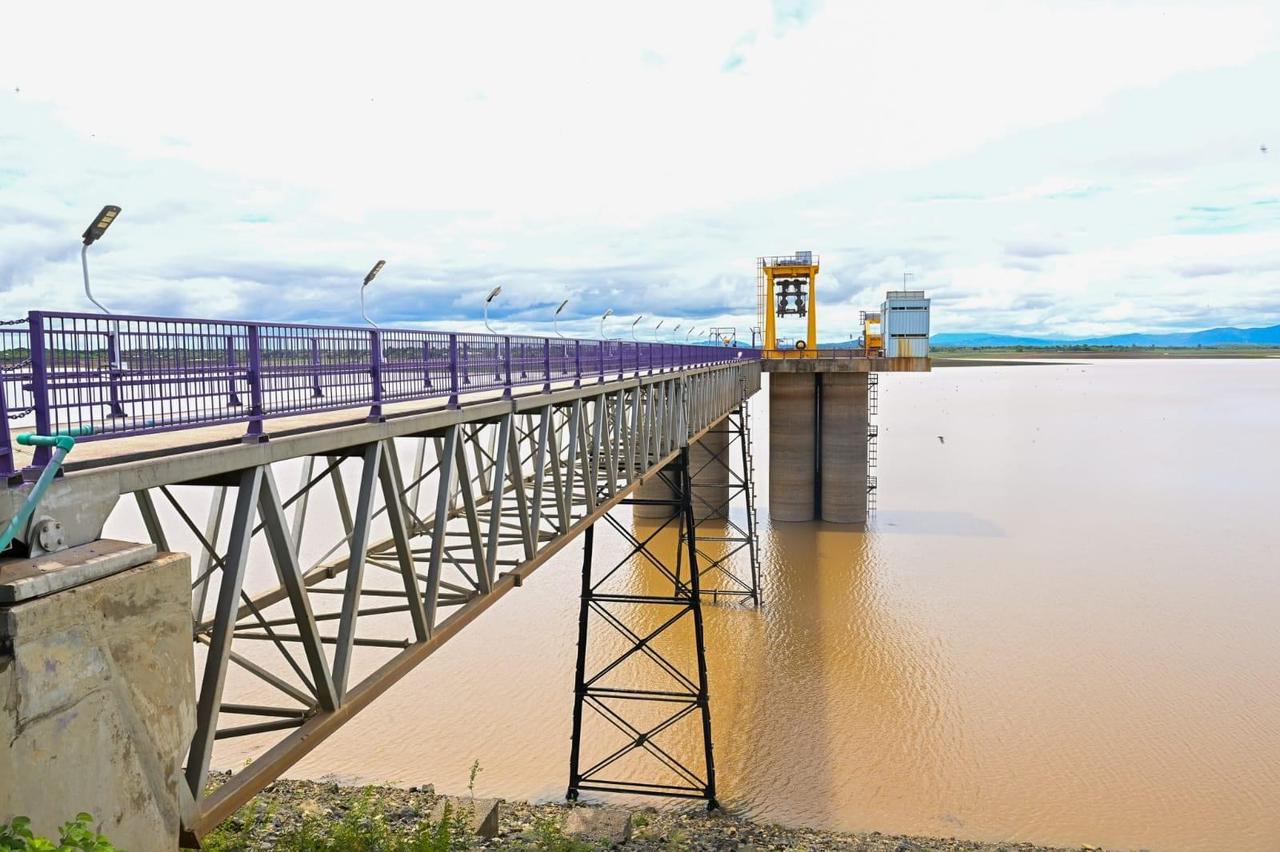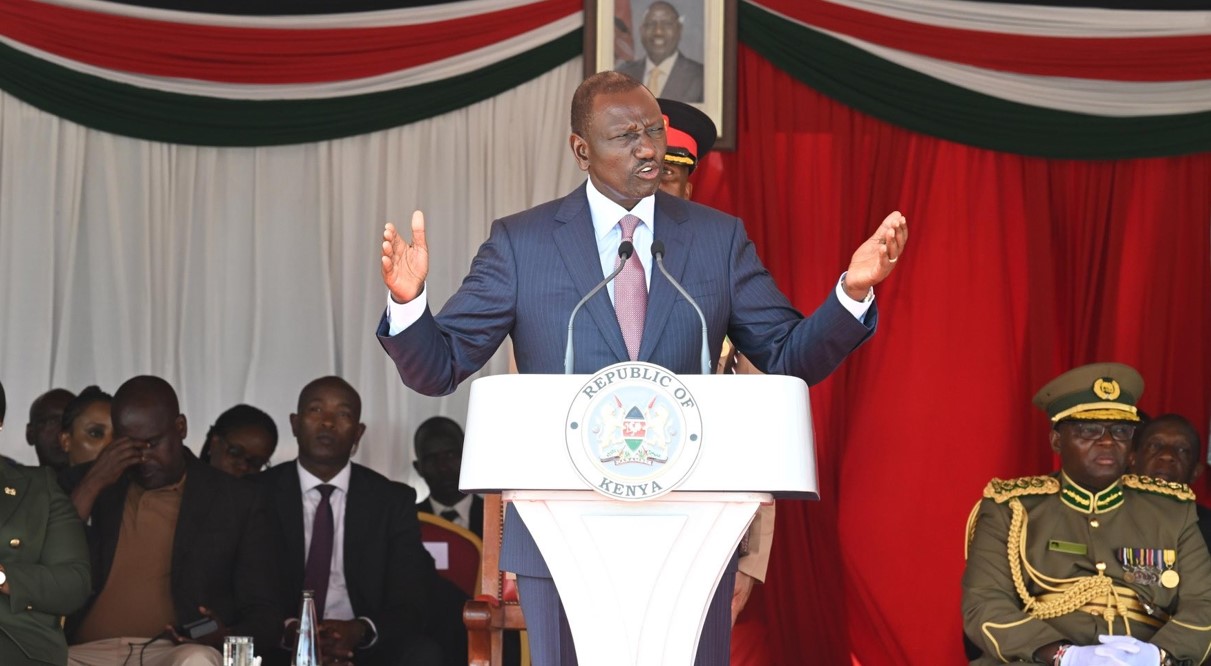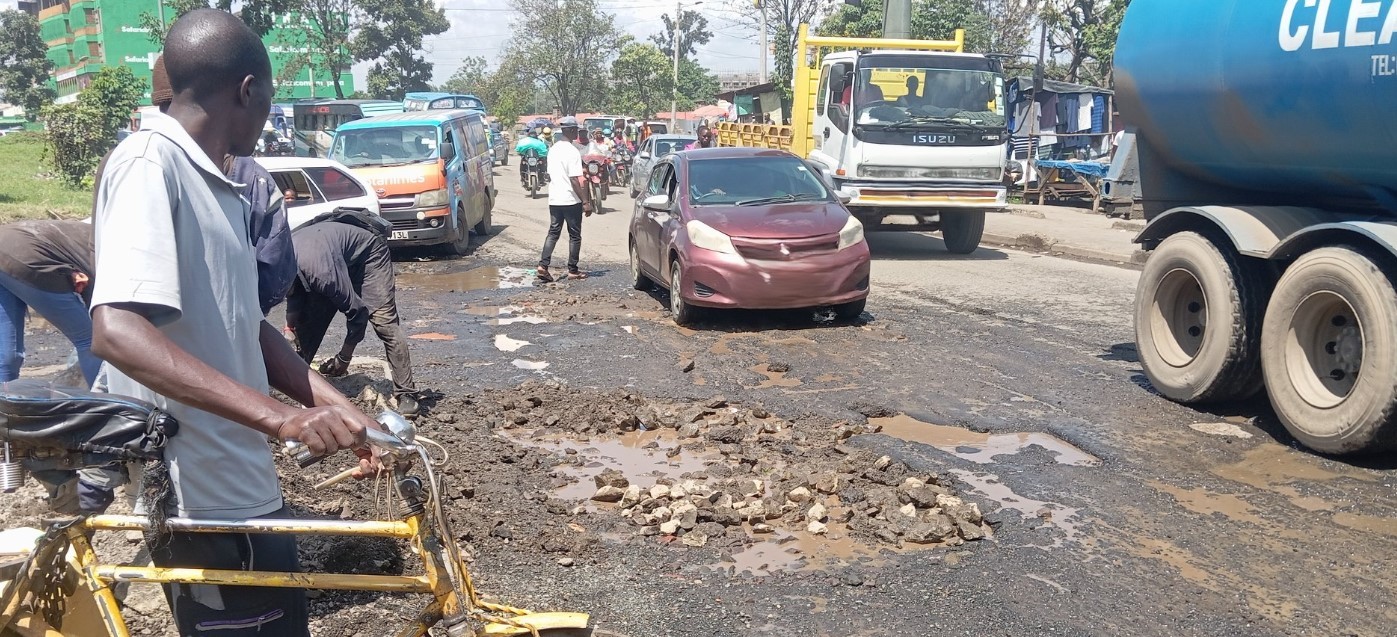KenGen assures Kenyans of steady power supply despite reduced rains

The company assured communities living downstream of the Seven Forks Dams that water flow in the Tana River will remain steady, even as the country faces reduced rains.
The generators of electricity in the country, KenGen on Thursday, moved to assure Kenyans that there will be no major power hitches despite reduced rains that could affect water levels in main dams used to generate power.
The company, in a press statement, assured communities living downstream of the Seven Forks Dams that water flow in the Tana River will remain steady, even as the country faces reduced rains.
More To Read
- Senator Lomenen demands action on frequent power blackouts, environmental concerns in Turkana
- KenGen ordered to pay Garissa residents Sh10M as compensation for land destroyed by oil spillage
- Kiambere Dam exceeds its full capacity, authority says
- Kenya on high alert after classing 192 dams, water reservoirs as very risky
"Consumers of electricity in Kenya will continue enjoying the benefits of cheaper Hydroelectric Power (HEP) following KenGen's deliberate move to implement a robust water management programme which will ensure steady generation of HEP even as rains subside," noted the statement.
According to the company, the strategic management of its large dams in the Eastern Region plays a critical role in regulating water levels, ensuring a consistent flow of the Tana River adding that without these interventions, the river could face severe depletion resulting from reduced rainfalls, affecting communities, agriculture, and wildlife that depend on its waters.
"Kenyans should be happy to know that the hydro generation has remained strong, helping to stabilise the cost of power and the various roles of the Seven Forks Hydroelectric Complex, which, as we have said before, shields communities downstream from flooding during heavy rains by holding the bulk of the water," said KenGen Managing Director Engineer Peter Njenga.
According to Njenga, as the country enters a period of reduced rains, those who depend on water from the River should not be worried since the company will be able to ensure a steady flow of water from our dams.
"Thanks to KenGen's robust water management program in the Seven Forks Dams, River Tana will continue to receive a steady flow of water as outflows from the five large dams. As of 6 pm on October 8, 2024, water levels across the Seven Forks dams remained high," explained Njenga.
Water levels across the Seven Forks dams remained high as follows; Masinga Dam which is the largest reservoir recorded 1,055.00 meters above sea level (Masl), Kamburu Dam at 1,001.87 Masl, Gitaru Dam at 922.32 Masl, Kindaruma Dam at 779.75 Masl, and Kiambere Dam at 696.97 Masl.
Full capacity
According to the latest reports from KenGen, all the major dams are at full capacity despite notably low inflows into the system, with only 1.89 cubic meters per second (Cumecs) entering Masinga Dam and 5.37 Cumecs recorded at the Thiba River.
Njenga reiterated that the company's strategic management of these reservoirs has prevented severe water shortages in the Tana River and helped cushion Kenyans against erratic water supply during the dry period.
Additionally, he noted that KenGen's diversified energy mix, which includes significant geothermal capacity, has been key in maintaining grid stability and powering the country during this time of reduced hydropower output.
"We are working around the clock to ensure that Kenyans continue to receive a reliable supply of power and that the water resources entrusted to us are managed sustainably," said Njenga.
KenGen's geothermal plants, which are not dependent on rainfall, currently provide a consistent source of power to the national grid, helping to buffer against the effects of erratic weather patterns. Geothermal energy, which now contributes nearly 40 per cent of power consumed by Kenyans, is part of Kenya's broader strategy to address the impacts of climate change by reducing the country's reliance on hydroelectric power, which is vulnerable to droughts.
By leveraging geothermal energy, KenGen is not only meeting demand but also supporting Kenya's climate action goals through clean and renewable energy generation.
"Our long-term strategy is to build resilience against climate change impacts by increasing our geothermal capacity and investing in more sustainable energy solutions," added Njenga.
Top Tags of the Day
Trending


















